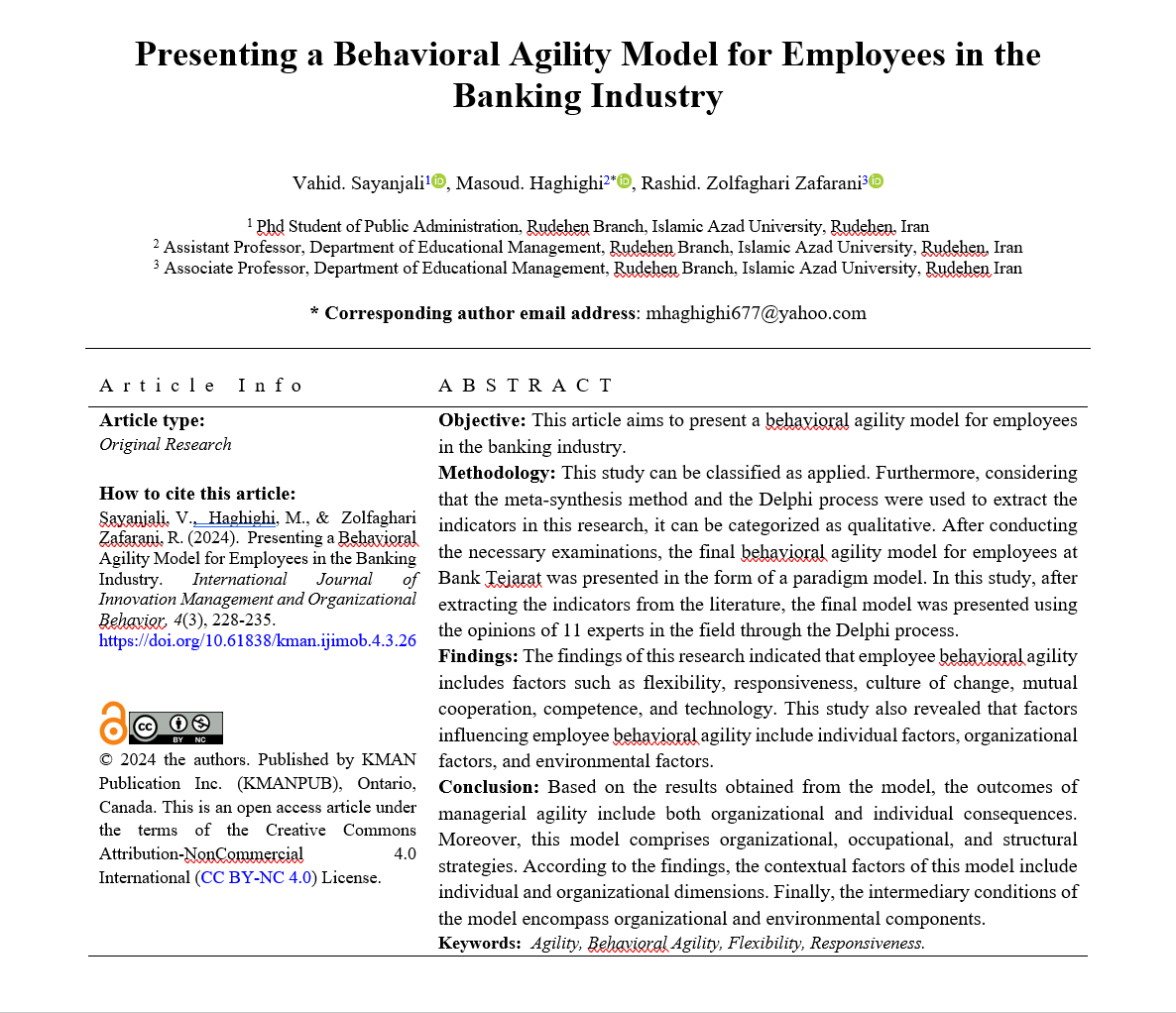Presenting a Behavioral Agility Model for Employees in the Banking Industry
Keywords:
Agility, Behavioral Agility, Flexibility, ResponsivenessAbstract
Objective: This article aims to present a behavioral agility model for employees in the banking industry.
Methodology: This study can be classified as applied. Furthermore, considering that the meta-synthesis method and the Delphi process were used to extract the indicators in this research, it can be categorized as qualitative. After conducting the necessary examinations, the final behavioral agility model for employees at Bank Tejarat was presented in the form of a paradigm model. In this study, after extracting the indicators from the literature, the final model was presented using the opinions of 11 experts in the field through the Delphi process.
Findings: The findings of this research indicated that employee behavioral agility includes factors such as flexibility, responsiveness, culture of change, mutual cooperation, competence, and technology. This study also revealed that factors influencing employee behavioral agility include individual factors, organizational factors, and environmental factors.
Conclusion: Based on the results obtained from the model, the outcomes of managerial agility include both organizational and individual consequences. Moreover, this model comprises organizational, occupational, and structural strategies. According to the findings, the contextual factors of this model include individual and organizational dimensions. Finally, the intermediary conditions of the model encompass organizational and environmental components.
Downloads

Downloads
Additional Files
Published
Submitted
Revised
Accepted
Issue
Section
License
Copyright (c) 2024 Vahid Sayanjali (Author); Masoud Haghighi (Corresponding Author); Rashid Zolfaghari Zafarani (Author)

This work is licensed under a Creative Commons Attribution-NonCommercial 4.0 International License.















